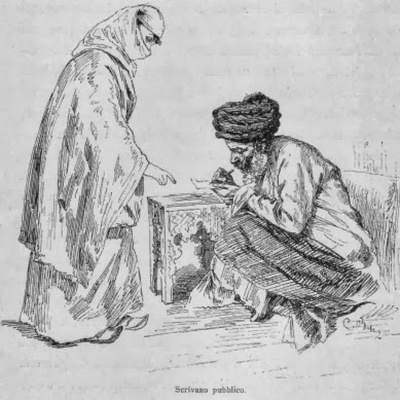Sinopsis
Law is a powerful lens for the study of the Ottoman Empire and the Islamic world. Bringing together diverse sources and new perspectives for legal history, this series explores law in and around the Ottoman Empire as a complex and capacious system underpinning the exercise of power inherent in all human relationships. Our presenters study the law to gain entry into the Ottoman household, exploring the relationships between husbands and wives, masters and slaves. Others use the legal system to understand the logic of the modernizing state, and the competing logics of its citizens, in shaping new forms of governance. Many of these podcasts explore the limits of Ottoman law, both externally at the borders of empire, and internally, at the margins of governable society. The underlying theme of this series is negotiation and compromise: between lawmakers and law-users, between theory and practice, between social body and individual experience. Individually and especially taken together, these podcasts take us far beyond the normative strictures of Sharia to understand the role of law in diverse societies in the Ottoman Empire and beyond.
Episodios
-
Osmanlı'da Mahremiyetin Sınırları
09/11/2013Fikret Yılmaz Emrah Safa Gürkan'ın sunuculuğuyla Download the seriesPodcast Feed | iTunes | Hipcast | SoundcloudOsmanlı'da kamusal alan ile özel yaşam arasındaki sınır nasıl çizilmiştir? Herkesin birbirinin muhbiri olduğu bir toplumda iktidar, toplum ve birey arasındaki ilişki nasıl düzenlenmiştir? Bu sorulara yanıt aradığımız bu podcastımızda Fikret Yılmaz ile erken modern Osmanlı toplumunda mahremiyetin sınırları üzerine konuştuk. Ayrıca, Osmanlı toplum tarihçiliğinin sıkıntılarına dikkat çekerek, kavramsal çalışmaların gerekliliğine dikkat çektik.Where did the boundary between the public and private spheres lie in the Ottoman Empire? How was the relationship between government, society and individual configured in a society where everyone spied on their neighbors? In search of answers to these questions, this episode of Ottoman History Podcast explores the boundaries of privacy in early modern Ottoman society with Dr. Fikret Yılmaz, drawing attention to the lacuna in historiography on Ottoman society
-
"Kadı"nın Günlüğü
25/07/2013Selim KarahasanoğluSadreddinzade günlüğünden örnek sayfalarKaynak: BOA, KK 7500, 158-159Osmanlı tarihyazımında cevabı aranan önemli bir soru da Osmanlı kültüründe günlük, anı, hatırat gibi ben anlatılarının bulunup bulunmadığıdır. Bu bölümümüzde Selim Karahasanoğlu ile son çalışması Sadreddinzade Telhisi Mustafa Efendi ceridesi hakkında konuştuk. 18. yüzyılın önde gelen ulema ailelerinden birine mensup bu Osmanlı kadısının 24 yıl boyunca düzenli olarak tuttuğu bu günlüğün tarihsel kaynak olarak değerine ve Avrupa'daki diğer örneklerle arasındaki fark ve benzerliklere değindik. Ayrıca, yazma kütüphanelerinde karşılaşılan kurumsal zorlukların nasıl Osmanlı kültür tarihi araştırmalarının önünü tıkadığının altını çizerek, bir kaç eser üzerinden genellemeler yapmanın zorluğundan bahsettik.Stream via Soundcloud (US / preferred) Stream via Hipcast (Turkey / Türkiye)18. yüzyıl Osmanlı tarihi üzerine uzmanlaşan Dr. Selim Karahasanoğlu İstanbul Medeniyet Üniversitesi'nde öğretim üyeliği yapmaktadır. (see his page
-
Pastoral Nomads and Legal Pluralism in Ottoman Jordan | Nora Barakat
25/07/2012Groups variously labeled as nomadic and tribal formed an integral part of Ottoman society, but because their communities exercised a wide degree of autonomy, they are often represented as somehow separate or "other" to urban and settled populations. However, the social history of these communities reveals that tribes and their members were involved in the continual transformation of Ottoman society not just as a force of resistance or hapless victims of state policies but also as participants. In this podcast, Nora Barakat deals with the social history of such communities, which appear in the court records of Salt (in modern Jordan) as "tent-dwellers," and their place in the complex legal sphere of the Tanzimat era during which both shar`ia law courts as well as new nizamiye courts served as forums for legal action.Stream via Soundcloud (US / preferred)Stream via Hipcast (Turkey / Türkiye)Nora Barakat is a PhD candidate at UC-Berkeley studying the legal and social history of Ottoman SyriaChris Gratien is a Ph














